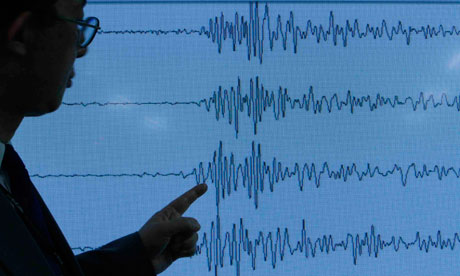
China has told UN security council members it plans to block publication of the organisation's special report that accuses North Korea of violating sanctions on its nuclear programme.
The UN panel of experts on North Korea submitted a report on 27 January to the security council's sanctions committee, which monitors compliance with UN sanctions imposed on the Pyongyang administration after it carried out nuclear tests in 2006 and 2009.
Western diplomats told Reuters that China informed council members it would block the publication and transfer of the report to the full council. They said China's move was odd since one of the experts who prepared the report, Xiaodong Xue, is Chinese.
The report, seen by Reuters, says North Korea almost certainly has several more undisclosed enrichment-related facilities and that its uranium enrichment programme and development of a light-water reactor are serious violations of UN sanctions.
The report of the panel, which includes experts from the five permanent security council members plus South Korea and Japan, was partly based on conversations with US nuclear scientist Siegfried Hecker, who saw about 2,000 centrifuges used to enrich uranium when he visited the country last year.
On Wednesday, the North Korean sanctions committee is due to present its quarterly update on compliance with the UN sanctions.
Western diplomats said they hoped the sanctions committee could meet before then, but China has made it difficult to schedule a meeting and wants the update to contain as few details as possible of the panel's enrichment assessment and Hecker's visit to North Korea.
Security council members have the power to block decisions and this is not the first time that Beijing has imposed a veto. Diplomats say it is emblematic of China's increasingly self-confident approach to international diplomacy as it seeks to protect states like North Korea to which it has close ties.
The panel's report raises a number of concerns about North Korea's nuclear programme including the fear that North Korea might "transfer fissile materials or the means of producing them" to foreign countries due to its shortage of hard currency. The panel has previously suggested that Pyongyang may have aided Syria, Burma and Iran with nuclear or missile technology.
North Korea says it began the enrichment programme in April 2009 but the panel concludes that it must have been developed much earlier, over the course of "several years or decades" and says it appears mainly to be for military purposes.
The report says the chief engineer at North Korea's Yongbyon nuclear complex told Hecker of a further facility for processing and converting uranium to a form usable in centrifuges but refused to show it to the American scientist.
North Korea's centrifuges, it says, are based on equipment Pyongyang received from Abdul Qadeer Khan, the father of Pakistan's nuclear arms programme, who operated a black market operation that specialised in selling enrichment technology to countries under sanctions such as Iran, Libya and North Korea.
North Korea says its centrifuges were developed domestically. The expert panel says that "more recent illicit attempts of acquisitions" of items from abroad that are crucial for centrifuge production casts doubt on that.
Like Iran, the panel says North Korea is using second-generation Pakistani-type equipment – known as P-2 centrifuges but has achieved far better results than the Iranians. The report says this is probably because it appears "to have cooperated more closely with AQK [Khan] than Iran, possibly receiving training in the assembly, operation and maintenance of centrifuges".
It adds there is no reason to doubt reports that about 200 North Korean nuclear engineers graduate every year.
















































No comments:
Post a Comment